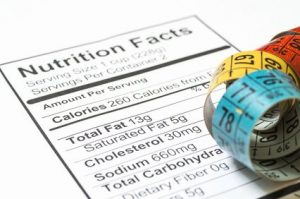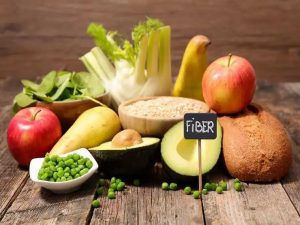Everyone wants to eat a healthier diet, but it can sometimes be difficult to know if your diet is healthy enough. There are a number of factors that go into creating a healthy diet, and it is important to evaluate the current state of your diet before embarking on a plan for healthier eating.
There are several questions you should ask yourself when evaluating the healthiness (or lack thereof) of your current eating plan. These questions include:
Do I eat a wide variety of foods?
Variety is one of the most important hallmarks of a healthy diet, since no one food contains all the nutrients needed by the human body. It is important to eat foods from all the major food groups, including grains and breads, fruits and vegetables, milk and dairy products, meats, beans and nuts.
If you find yourself avoiding some food groups, such as vegetables for instance, it may be time to look for a healthier diet.
Do I recognize the importance of cereals, breads and other grain products?
Eating a wide variety of grain based products is important to a healthy diet. Grains and cereals contain a large number of important nutrients, including high levels of dietary fiber.
It is important to choose whole grain products as often as possible, since whole grain products like wheat bread contain more nutrients than more refined white bread and similar products. When eating cereal, it is a good idea to choose whole grain varieties, or those that are enriched with vitamins and minerals.
Do I eat enough fruits and vegetables?
Many people do not eat sufficient servings of fruits and vegetables every day. Most experts recommend eating between 5 and 9 servings of fruits and vegetables every day, roughly equivalent to 2 cups of fruit and 2 ½ cups of vegetables.
When shopping for vegetables and fruits, it is important to choose a good variety of dark green, dark red, orange and yellow varieties. That is because different colored fruits and vegetables contain a variety of different nutrients, including vitamin C, vitamin A and beta carotene.
Do I eat a good breakfast every morning?
Breakfast, or the absence of it, is often a good indicator of the state of your diet. If you rush out of the house every morning and grab a donut at the local convenience store, chances are your diet can use some work. A healthy breakfast provides a foundation for the rest of the day, helps you avoid cravings and provides much needed nutrition.
Do I choose low fat foods over higher fat alternatives?
This is also an important question to ask yourself. Low fat alternatives are available for a variety of products, including milk, cheese, meats and more.
One part of following a healthy, low fat diet is avoiding prepared foods whenever possible, since prepared foods tend to have higher amounts of fat and sodium than fresh foods.
It is also important to control the amount of fat that is added at the table. Adding things like butter, sour cream and heavy sauces is a sure way to ruin an otherwise healthy meal. Even healthy foods like salads can be sabotaged by the addition of high fat salad dressings. Try using lower fat alternatives like flavored vinegars instead.
Do I drink plenty of water?
Drinking plenty of fresh, pure water is important to maintaining a healthy body and a healthy lifestyle. Water is important to maintaining optimal levels of health.
If you think you need more water, try substituting water for less healthy beverages like soda and coffee.
Am I able to maintain my optimal body weight?
Gaining weight without trying to is often a sign of a poor diet. Following a healthy diet, and getting plenty of regular exercise, is the only way to lose weight and keep it off.
Do I limit the amount of salt, sugar, alcohol and caffeine in my diet?
While all of these elements are fine in moderation, excessive amounts of any of these four can indicate a serious problem with your diet. It is important to limit the amount of unhealthy elements in any diet.












Be First to Comment